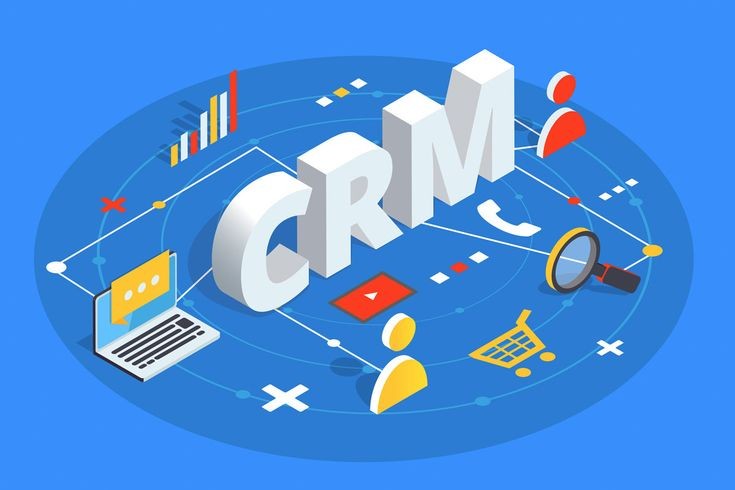How CRM Software Benefits Small Businesses:
- Centralized Customer Data for Personalization:
One of the key advantages of CRM software for small businesses is its ability to centralize customer data. By storing all customer interactions, preferences, and purchase history in one place, small businesses can offer highly personalized service and marketing. This level of personalization helps small businesses build strong, loyal relationships with customers, which is often a challenge for larger companies that may struggle to deliver the same personalized attention. - Improved Customer Segmentation:
CRM systems allow small businesses to segment their customer base more effectively. By grouping customers based on demographics, buying behavior, or engagement levels, small businesses can target specific segments with tailored marketing campaigns. This ensures that marketing efforts are more focused and relevant, improving the chances of conversion and reducing wasted resources. - Automation of Time-Consuming Tasks:
Small businesses often have limited staff, and resources must be used efficiently. CRM software can automate repetitive tasks such as email campaigns, follow-ups, lead management, and data entry. Automation not only saves time but also ensures that no task is overlooked, helping small businesses stay organized and responsive to customer needs. - Improved Customer Service and Support:
CRM software enhances customer service by providing small businesses with a complete view of customer interactions. With all relevant customer data at their fingertips, customer service teams can address issues more effectively and resolve problems faster. Furthermore, CRM tools often include self-service options, such as knowledge bases and FAQs, which empower customers to find solutions to their problems without needing direct support. - Cost-Effective Marketing and Sales:
CRM software allows small businesses to maximize the impact of their marketing efforts without overspending. With CRM tools, small businesses can track customer behavior, identify high-value leads, and prioritize resources toward the most promising opportunities. This targeted approach improves ROI on marketing campaigns and allows small businesses to compete with larger enterprises that may have bigger marketing budgets.
Top CRM Software for Small Businesses:
- Zoho CRM:
Zoho CRM is an affordable and feature-rich CRM solution designed for small businesses. It offers lead management, email automation, social media integration, and customizable reporting tools. Zoho CRM is easy to use and scales as your business grows, making it a great option for small businesses looking for flexibility. - HubSpot CRM:
HubSpot CRM offers a free version that’s perfect for small businesses just starting to implement CRM systems. With its simple interface and a wide range of marketing, sales, and customer service tools, HubSpot helps small businesses increase efficiency, improve customer relationships, and grow their business. - Pipedrive:
Pipedrive is a sales-focused CRM designed to help small businesses streamline their sales processes. With its intuitive pipeline management system, Pipedrive helps small businesses track and manage deals, automate workflows, and prioritize high-value prospects. It’s a great choice for small businesses looking to improve their sales performance. - Freshsales:
Freshsales is a powerful CRM solution for small businesses that offers features such as lead management, email tracking, and reporting. It also includes AI-powered insights and automation tools, allowing small businesses to work smarter, not harder. Freshsales is an excellent choice for small businesses looking for a comprehensive and affordable CRM solution.
Best Practices for Small Businesses Using CRM Software:
- Set Clear Goals and KPIs:
Before implementing a CRM system, it’s important for small businesses to define clear goals and key performance indicators (KPIs). Whether it’s increasing sales, improving customer retention, or enhancing customer service, having specific objectives helps businesses measure success and align their CRM strategy with their overall business goals. - Ensure Data Accuracy:
The effectiveness of CRM software depends on the accuracy of the data entered. Small businesses must prioritize keeping customer information up-to-date and free of errors. Accurate data allows businesses to create targeted campaigns, offer personalized experiences, and make better business decisions. - Focus on Automation:
Automation is a powerful feature of CRM software that small businesses should take full advantage of. By automating tasks like follow-ups, email marketing, and lead nurturing, small businesses can save time, reduce manual errors, and ensure consistent communication with customers. - Train Your Team:
Proper training is essential for maximizing the potential of CRM software. Small businesses should ensure that their team is well-trained in using the CRM system to its full extent. Regular training and updates on new features will help the team work more efficiently and take full advantage of the system’s capabilities.
Conclusion:
CRM software is a game-changer for small businesses looking to compete with larger enterprises. By centralizing customer data, automating tasks, and improving customer service, CRM systems allow small businesses to offer personalized experiences, streamline operations, and grow their business more efficiently. With the right CRM system in place, small businesses can gain a competitive edge, enhance customer loyalty, and drive long-term success.




